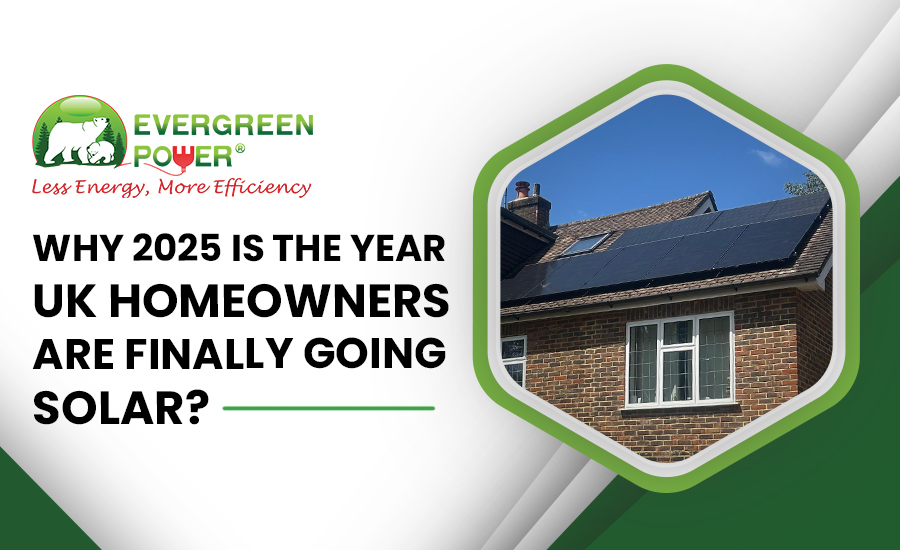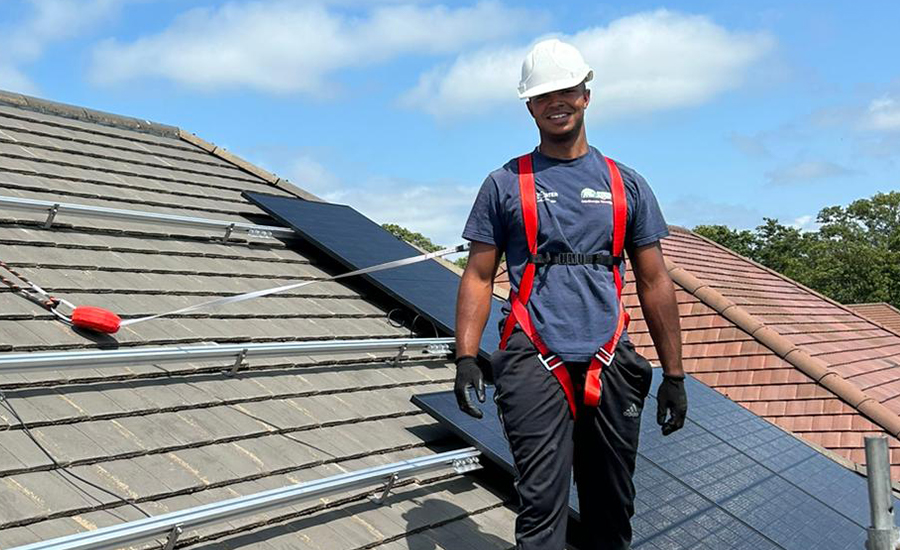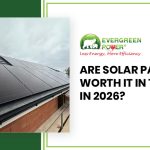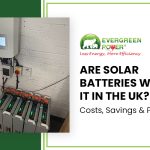
UK Homeowners Are Finally Going Solar
You’ve Seen the Panels. Now It’s Your Turn
A few years ago, solar panels on rooftops were a bit of a novelty—something your eco-conscious neighbour or the village’s tech enthusiast might install. But now? It’s different. More and more homes up and down the UK are quietly turning into mini power stations. If you’ve been thinking about solar 2025 might just be your moment.
Let’s talk about why
It’s Not Just About Saving the Planet (Though That’s a Pretty Big Deal)
Yes, going solar is a greener choice. You’ll cut your carbon footprint and contribute to a cleaner grid. But here’s the thing: most people who go solar don’t do it just for the environment.
They do it because their electricity bills are out of control.
In 2025, the average UK household is still spending well over £2,000 a year on electricity. And while prices have stabilised a bit since the energy crisis, no one’s expecting a magical drop anytime soon. So instead of hoping for the best, more people are choosing to take matters into their own hands—literally—by generating their own power.
Solar Panel Prices Have Quietly Dropped
One reason people used to hold back. The cost. But that’s changed.
Thanks to better tech and a more competitive UK market, solar panel systems are now cheaper than ever. A standard setup that might’ve Solar Panels uk cost £12,000 to £14,000 a few years ago could now be closer to £8,000 to £9,000 — depending on your roof, location, and the type of system you go for.
Plus, the panels last around 25 to 30 years. That’s not just a purchase; that’s an investment in energy independence.
The Government’s Still Offering Perks — But Maybe Not Forever

As of 2025, the UK government is still offering a few solid reasons to go solar:
- 0% VAT on solar installations (that’s already a decent saving)
- Smart Export Guarantee (SEG), which pays you for the extra electricity you generate and send back to the grid
But let’s be honest: these things change fast. If you’re thinking about going solar, it’s worth acting before the next budget reshuffle.
“But Does It Even Work in the UK?” Actually, Yes.
This one comes up a lot: Doesn’t it need to be sunny all the time?
Nope.
Solar panels run on daylight, not just sunshine. That means even on those moody, overcast days (hello, British weather), your panels are still working. In fact, cooler temperatures can actually help solar power run more efficiently.
Add in the long daylight hours we get during the summer months, and you’ve got a solid seasonal boost to your output.
It’s Not Just Good for Your Bills — it Could Help Your Property Value Too
Here’s something many homeowners overlook: adding solar panels UK price transparency can make your home more attractive to buyers
Energy-efficient homes are in demand. And for someone comparing two similar properties, the one with solar panels near me and cheaper energy bills might just win them over. Some studies suggest you could even see a 2% – 4% uplift in your property’s value. Not bad for something that also saves you money every month
Installation Isn’t the Nightmare You Might Think

We get it. The idea of scaffolding, rewiring, and installers clambering around your roof isn’t exactly appealing. But here’s the reality: most residential installs take 1 to 2 days, and that includes the scaffolding, roofing, electrics and connection to the grid.
Planning permission? In most cases, not needed. Maintenance? Minimal. You might give the panels a wash now and then, and schedule a system check every few years—but that’s about it.
Battery Storage? It’s Not Just for Tech Geeks Anymore
A few years ago, adding a battery to your ground mount solar installation setup felt like a luxury. Today, it’s fast becoming the norm.
Are Solar Batteries worth it? A solar battery lets you store unused energy for later use such as after sunset, helping you draw fewer units from the grid and get more value from your panels, with falling prices making batteries a smart add-on rather than a future upgrade
Let’s Be Honest—It Just Makes Sense Now
Here’s the thing: if you’ve got a decent roof, you’re staying in your home for the next few years, and you’re tired of watching your energy bills rise… why not get solar?
2025 might just be the year you stop thinking about solar and actually do something about it.
FAQs
1. Do I need a south-facing roof?
It helps, but east or west still works well.
2. Can solar panels work on cloudy days?
Yes – daylight is enough. You don’t need direct sunshine all the time.
3. Are there still grants in 2025?
Yes. 0% VAT and SEG payments are available now.
4. How long before the system pays for itself?
Most homeowners break even in 6 – 8 years, depending on usage and whether a battery is included.
Written by: Kyler Walter

- Kyler Walter is a passionate advocate for renewable energy and sustainable living. As a leading voice at Evergreen Power UK, he specializes in solar energy solutions and has played a vital role in promoting innovative, eco-conscious technologies across the UK.
Latest entries
 SolarJanuary 19, 2026Are Solar Panels Worth It in the UK in 2026?
SolarJanuary 19, 2026Are Solar Panels Worth It in the UK in 2026? Solar BatteriesJanuary 9, 2026Why Combine Solar PV with Home Battery Storage? Practical benefits for UK homeowners
Solar BatteriesJanuary 9, 2026Why Combine Solar PV with Home Battery Storage? Practical benefits for UK homeowners Solar BatteriesDecember 4, 2025Are solar batteries worth it in the UK? Costs, savings & payback
Solar BatteriesDecember 4, 2025Are solar batteries worth it in the UK? Costs, savings & payback  SolarNovember 6, 2025Do solar panels work in winter in the UK? What to expect
SolarNovember 6, 2025Do solar panels work in winter in the UK? What to expect
 020 3793 7323
020 3793 7323


